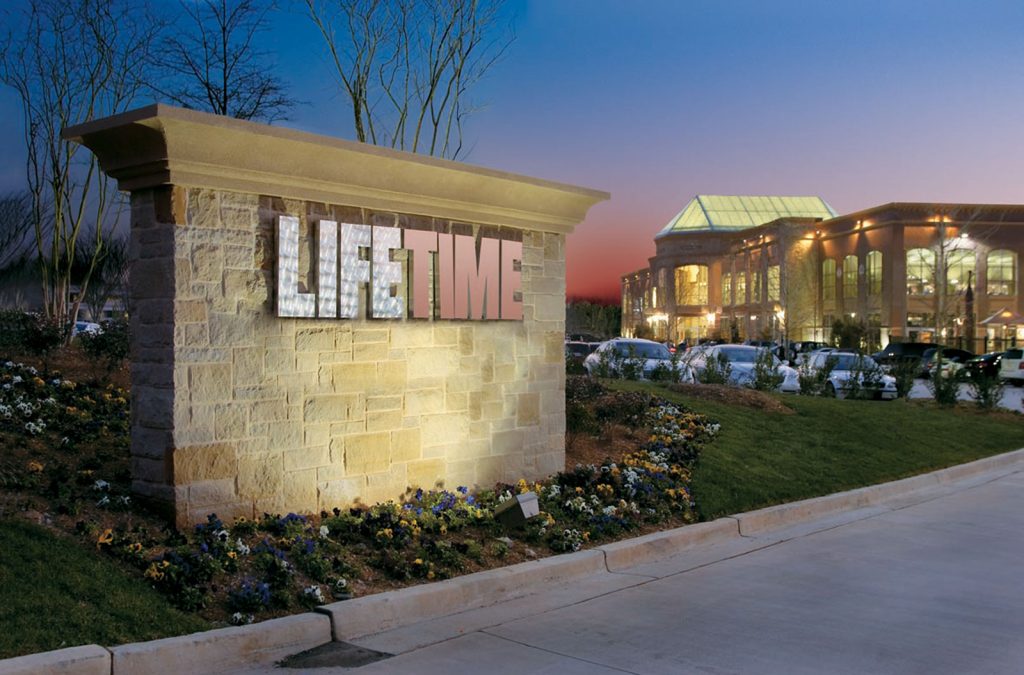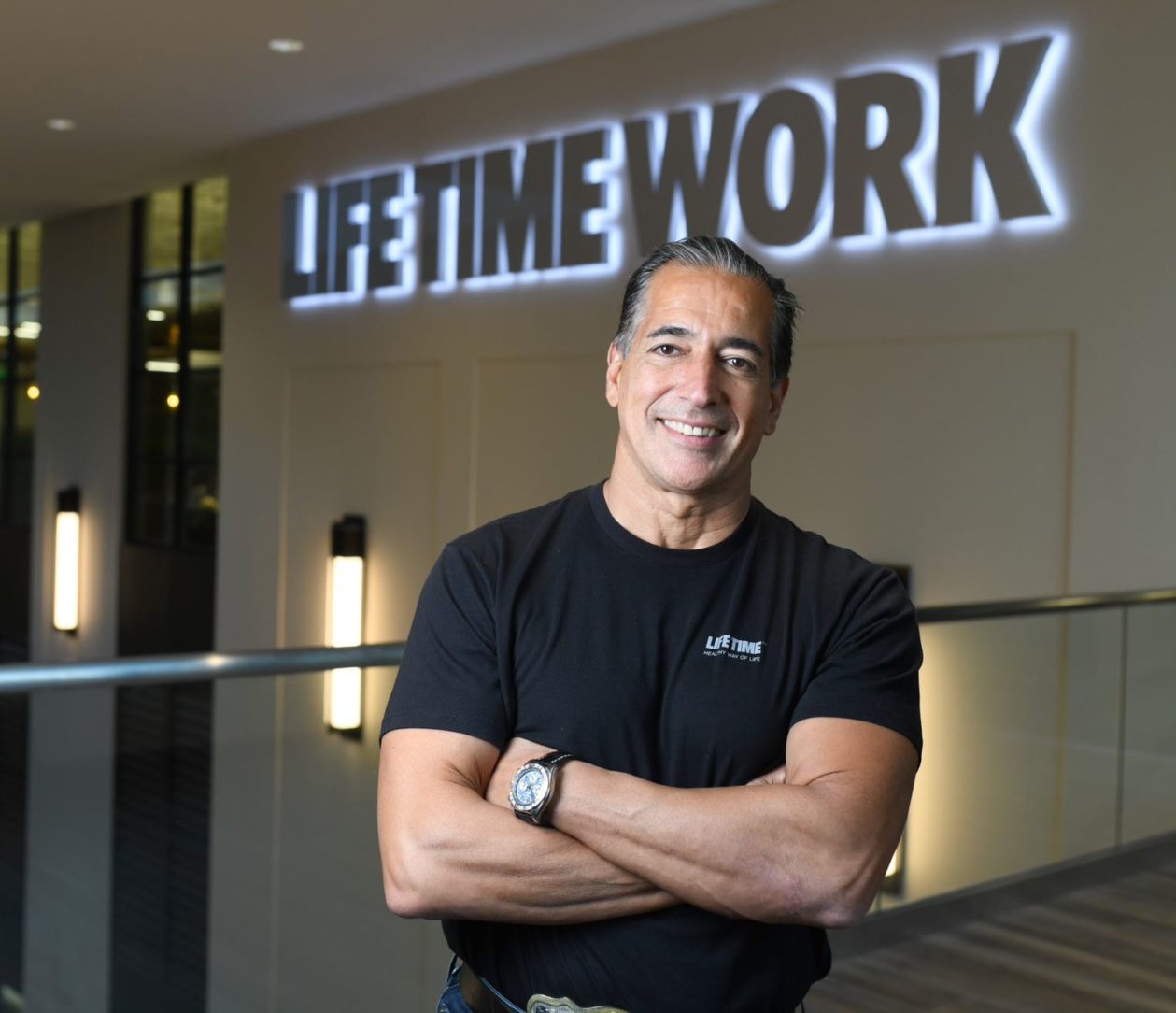Bahram Akradi is not one to mince words.
“We should think of this coronavirus outbreak as a wake-up call. As harsh as this might sound, COVID-19 is a lucky break,” Akradi says as the 58-year old founder and CEO of Life Time, the country’s largest diversified health club and real estate conglomerate, which posted 2018 revenues of $1.8 billion. “The first modern global pandemic could have been much worse with a faster attack cycle and a much higher fatality rate. COVID-19 is sufficiently painful, in that it is forcing a global marshaling of governments and private sector resources, but it’s solvable. Going forward, civil society will be far better prepared for the next global epidemic, which could be many more times lethal and require a more rapid response.”
I spoke to Akradi by phone, but the perennially buoyant entrepreneur shared with me that even though he was alone in his office, practicing social distancing, he was still wearing a suit and tie. “Business isn’t dead. We have just hit pause. All 150 of our health clubs across the U.S. and Canada—even those in states where we were not mandated to shut down—have closed out of an abundance of caution, but we will be back, as will American business, stronger and more resilient than ever before.”

Q: First of all, how are you holding up?
A: I feel pretty good. Obviously, I am concerned for our roughly 38,000 employees. This is a tough time for them and keeping them whole is my number one goal as we head into the uncharted waters ahead.
Your business gives you an interesting perspective on the coronavirus epidemic. On one hand, your gyms are closed, so that must have an immediate impact on cash flow, but on the other hand, your company’s mission is dedicated to the health and well-being of your members. How do you reconcile those two forces, which are seemingly at odds with one another?
We are at war. And we need to make wartime sacrifices. But, most importantly, what we need now is a comprehensive and committed approach. If we were in a traditional war—a military conflict—the president would assign a five-star general to lead the effort. We need to come together, Democrats, Republicans, local, state and federal leaders, public sector, private sector—and marshal resources against one cohesive plan.

It sounds like you are taking a shot at President Donald Trump for a lack of leadership.
No. Absolutely not. We have a president who was duly elected and who I believe is trying to do his best, as is everyone in Washington now. We are at war, and I don’t think it makes any sense to criticize our leaders who I honestly believe have our best interests at heart. If it was President Obama at the helm now, I would support him as well. This isn’t political. We need to respect the office of the presidency. This is about creating a well thought out battle plan to save our country. Balance is the key.

Could you expand upon that?
World War II is the closest event that I can think of that comes even close to describing the scale and size of the challenge that we as a nation are dealing with. What makes this particular challenge so scary is that we are facing an untraditional adversary—not a foreign power or even a rogue terrorist cell—we are fighting a deadly, microscopic enemy the likes of which we haven’t seen in the modern era.
Look, this virus is here, and we have to deal with it. Since we have chosen to go the route of social distancing, we have to be resolute in our commitment to that approach. This is no time for half-measures. But at the same time, we need to be clear about how long we are going to be continuing a policy of isolation. It might be two weeks, three weeks, five weeks. I don’t know, that’s not my call, but we need to work off of a timetable that is widely communicated so businesses and households, as well as those in the health care system, can all plan accordingly. But just like in war, we know there are going to be casualties, and we have to accept that. We need to be courageous.
What kind of country will emerge on the other side of COVID-19?
I am incredibly optimistic that the damage of this virus can be contained, and we can get America back on its feet and back to work. But we if we are making this tremendous sacrifice, we need to make the most out of it. We need to learn. Someday, we will have a virus that will be equally or even more contagious.
You think another virus is imminent?
We should think of this coronavirus outbreak as a wake-up call. As harsh as this might sound, COVID-19 is a lucky break for us all. The first modern pandemic could have been much worse with a faster attack cycle and a much higher fatality rate. COVID-19 is sufficiently painful in that it is forcing a global marshaling of government and private sector resources, but it’s solvable. Going forward, civil society will be far better prepared for the next global epidemic, which could be many more times lethal and require a more rapid response. This is our dress rehearsal.
So, what do we need to do now?
We need to pick a date—it’s not my job to do that; that’s for our political and scientific leaders to decide—but we need to settle soon on a date that America goes back to work. Hospitals, medical professionals, the pharmaceutical industry—everyone needs to have a future date that they can plan against defensively. Businesses, on the other hand, need that same date so they can plan their offensive strategy to reopen. We need a deadline that will force the hard decisions to be made. What’s driving a lot of the economic unease is the uncertainty. Business revolves around certainty. Board rooms need to stop asking “what if” and begin planning against a certain date.
The president seemed to be indicating he would like the country to “open up” by Easter Sunday, which is less than three weeks away? Now, he’s saying April 30. Is that too soon?
While I am not suggesting a specific date, I very much think that we should look at the month of April as a month of ‘pause.’ If we plan on reopening the country on, say, May 1, it may indeed have to be a phased approach where certain areas of the country open up before others, and we take special precautions to make sure the elderly and infirm continue to be in isolation while we await treatment drugs and an eventual vaccine. I firmly believe that the young people who have shown themselves to be much more resistance to the coronavirus can reboot the American economy.

What do you mean when you say April should be a ‘month of pause’?
This is happening already. If you call your bank, asking to refinance or delay a payment for April, odds are that they will approve your request. The same goes for tenants who are renting an apartment. No landlord can get rid of all their tenants at the same time. No bank can bankrupt all of the real estate holders. My solution is that during the month of April, the economy basically stops calculating financial obligations.
How would that work exactly?
Let’s assume you have 10 years, 120 months, left on a lease on a building as of April 1. What I am suggesting is simply that you would continue to have a 10-year lease on that same building as of May 1. Instead of your lease ending on April 30, 2030, it would end on May 31, 2030. The landlord can easily re-schedule the financing with the bank. This way, businesses would not be burdened by having to pay salaries to cover employees’ fixed real estate expenses, such as rent or mortgages, and could devote their cash on hand to making sure that employees have what they need to feed and take care of themselves and their families, including maintaining health insurance coverage. This way, businesses can keep everyone afloat during the month of April, so when the ship relaunches in May, all the employees are still on board. It’s a little more complicated than that, but that is the general idea.
What do you see as the possible health impacts of an extended period of social distancing and home isolation?
We can’t have an extended period of 10 to 15 percent unemployment. The long-term health toll of protracted economic uncertainty and inactivity would far outpace the health impact of this current epidemic. Suicide rates, depression, stress and other important health factors would become severe. President Trump has said that the long-term damage caused by not reopening the economy relatively soon could potentially be worse from a health perspective than the virus itself, and I totally agree with that.

How is Life Time faring during this period?
We are trying to do all the right things. All of the executives—myself included—suspended 100 percent of our own pay even before governors began ordering gyms to close. We are fully committed to paying our 38,000 employees through the end of this month. Our executive team is working feverishly to ensure that going forward, we have a plan to provide help and assistance to our employees so that they can remain intact and make it through the storm when the whole thing is over. I am waiting until the very last moment to make a decision as to what will happen next, so I have as much information as possible from what the government is doing, where the virus is headed, and other considerations, so I can do what’s in the best interests of my employees. My number one goal is keeping all of my employees on my ship while we are docked at port, so we have a full crew when we set sail again.
How does this impact your organization’s diversified growth plans?
We have to be nimble and willing to adapt. Will this change some of our growth plans? Absolutely. Will we prevail? You can bet on it.







